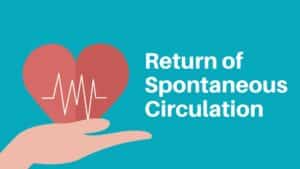Every five years, the International Liaison Committee on Resuscitation and American Heart Association revisit research and data and in turn, issue changes to the CPR administration. In October 2010, a significant change was made: a shift away from the ABC technique (airway, breathing, and circulation) and towards a CAB approach (chest compressions, airway, and breathing.)
This shift, while seemingly subtle, has profound effects of administering CPR and hopes to boost the survival rates of those afflicted by heart attacks and cardiac arrest.
To the latter point, the room for improvement is great. There has been a traditionally low survival rate for those suffering from a heart attack or cardiac arrest if they do not receive immediate bystander CPR. The reasons why bystanders are afraid to perform the technique are many: fear of hurting the individual, discomfort with the mouth-to-mouth element, and of course, a general lack of training. Because of this, only 30 percent of cardiac arrest victims receive bystander CPR.
Ultimately, this shift in administering CPR is good news for everyone. Those who were previously uncomfortable with performing the technique can partake in onsite CPR training to learn the new methods. And more trained individuals will most certainly lead to more saved lives.










